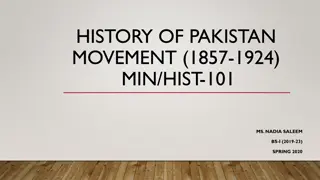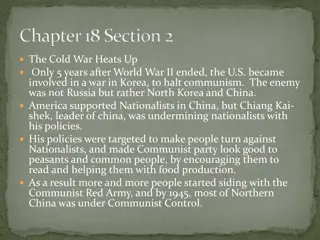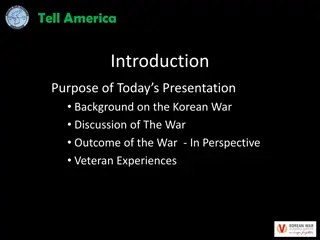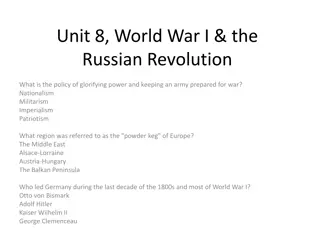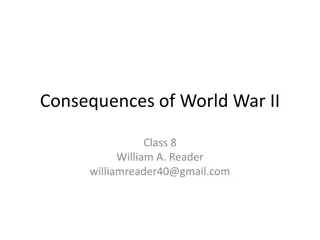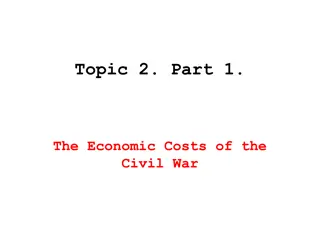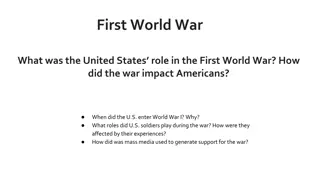Effects of First World War on Subcontinent
World War I, also known as the Great War, had significant negative impacts on the Indian subcontinent. Indians faced difficulties on the home front due to massive recruitment efforts, high taxes, and price hikes. The war led to a drain of wealth, food shortages, and a fall in the standard of living. Mahatma Gandhi rose to prominence during this period, transforming the Indian national movement.
Download Presentation

Please find below an Image/Link to download the presentation.
The content on the website is provided AS IS for your information and personal use only. It may not be sold, licensed, or shared on other websites without obtaining consent from the author. Download presentation by click this link. If you encounter any issues during the download, it is possible that the publisher has removed the file from their server.
E N D
Presentation Transcript
UNIT 5 Effects of First World War on Subcontinent
World War I World War I, also known as the First World War or the Great War, was a global war originating in Europe that lasted from 28 July 1914 to 11 November 1918. During the conflict, Germany, Austria- Hungary, Bulgaria and the Ottoman Empire (the Central Powers) fought against Great Britain, France, Russia, Italy, Romania, Japan and the United States (the Allied Powers).
CONT It ended with the defeat of the Central Powers.
Effects of WWI on Subcontinent The war years were difficult ones for Indians on the home front whose lives were negatively impacted by massive recruitment efforts, high taxes and a sharp rise in prices. The war had drained India of troops and at one point a mere 15,000 soldiers were physically present in the subcontinent.
CONT First, Indians were recruited massively and were sent off to die in war-fronts, although the War had no direct link with the Indian people. Second, in the War years there was a huge 'drain of wealth'. The wealth was drained out in the form of grain and raw materials for the military needs. The situation was such that food was exported keeping Indians starved.
CONT Third, another impact of the World War I was felt when the prices of industrial goods as also of imported manufactures went up sharply. Fourth, for the common people the war meant misery and fall in the standard of living. Fifth, the far-reaching effect of the World War I, however, was the rise of Mahatma Gandhi who transformed the very nature of the Indian national movement.
CONT It led to a huge increase in defense expenditure which was financed by war loans and increasing taxes. Costume duties were raised and income tax was introduced Villages were called upon to supply soldiers and the forced recruitment in rural areas caused widespread anger. Crops failed in many parts of India resulting in acute shortage of food which was accompanied by an influenza epidemic.



![❤[PDF]⚡ Civil War Talks: Further Reminiscences of George S. Bernard and His Fel](/thumb/20551/pdf-civil-war-talks-further-reminiscences-of-george-s-bernard-and-his-fel.jpg)

